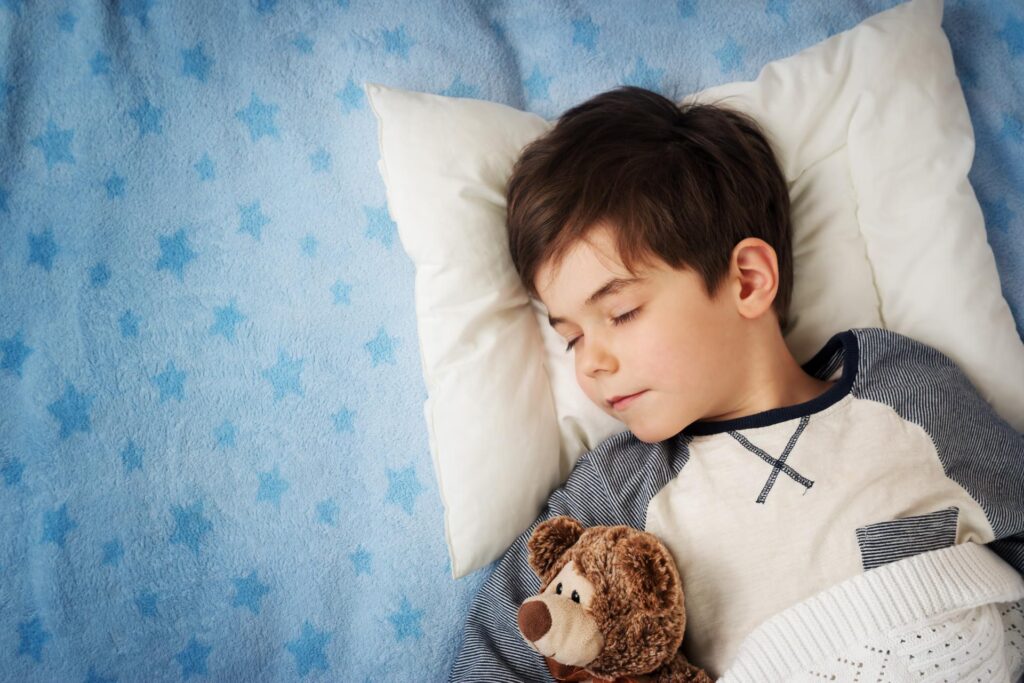Many ADHD children struggle with sleep issues; in fact, according to the Sleep Heath Foundation, a surprising 70% of all ADHD children experience problems with sleep. They often complain both about being able to fall sleep and able to stay asleep. Some issues may be biological in nature and some may be behavioral. Commonly reported medical or biological based sleep concerns include:
- Restless legs syndrome
- Sleep apnea
- Circadian rhythm disorders
- Periodic limb movement disorder
If any of these are a concern it may be beneficial to seek medical support.
Behaviorally, there are a variety of reasons why children may experience sleep refusal or simply want to stay up at night. Common reasons include:
- Hyperfocus on play
- Fear of the dark
- Anxiety surrounding sleeping in the bed alone
- Racing thoughts that feel overwhelming at night time
- Delayed sleep phase syndrome (which leads to late bedtimes and wake times)
- Sleep association (where a parent/caregiver, object, or tv is required to fall asleep)
- Medication can also play a major role if a stimulant is being taken because stimulants often impact sleep.
- In addition, many ADHD children struggle with anxiety and depression which impact sleep, the ability to stay asleep and/or fall asleep.
A few tips to improve your ADHD children’s sleep:
Have a regular consistent routine every night.
This helps children prepare for what to expect mentally and physically. Their bodies can become more accustomed to winding down and produce the proper chemicals to induce sleep.
Allow children to express their thoughts prior to bedtime, especially if they have racing thoughts.
Give them a specific amount of time for a “brain dump” every night in order to prevent them from perseverating on worries for an extensive amount of time.
Create a calming area for them to feel comfortable.
Reduce screens prior to bedtime.
This prevents children from taking in new information to process right before bedtime which can create bedtime resistance.
Try implementing white noise.
Talk to the prescribing physician, especially if a stimulant has been prescribed, to help brainstorm ways to improve sleep.

